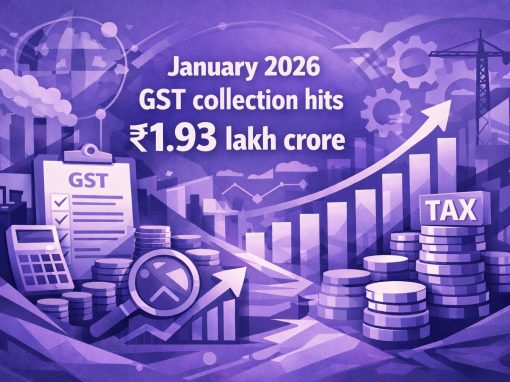Table of contents:
A company can participate to bid tenders only when they meet specific eligibility criteria set by government authorities. These requirements ensure that only qualified, capable, and legally compliant businesses for government contracts.
Understanding govt tender eligibility is essential for any business looking to expand its reach through government projects.
You will learn about the key eligibility criteria, necessary documentation, and sector-specific requirements to help you navigate the tendering process successfully as per the Government tender guidelines.
General Criteria for Government Tenders Eligibility
When it comes to participating in Government Tenders , businesses must meet several general eligibility criteria to qualify for consideration. These criteria ensure that only businesses capable of delivering the required services or products are selected. Below are the key eligibility requirements that businesses must meet in order to apply for government tenders.
- Company Registration and Legal Status
Your business must be legally registered under relevant laws such as the Companies Act, Partnership Act, or other applicable regulations. Only registered businesses can participate in tenders, while unregistered ones are not eligible.
- Financial Requirements
Government tenders require businesses to demonstrate financial stability. This includes meeting minimum annual turnover and submitting audited financial statements for the past 3 to 5 years. This helps assess the business’s ability to manage large-scale projects.
- Technical Qualifications
Certain tenders, especially in sectors like construction and IT, require businesses to have relevant technical qualifications. This includes skilled personnel, certifications (e.g., ISO), and experience in handling similar projects.
- Compliance with Tax Regulations
Businesses must be tax-compliant, including GST registration, tax clearance certificates, and proof of Income Tax and VAT filings. This ensures the business meets legal financial obligations.
- Blacklisting and Debarment Status
Companies must not have been blacklisted or debarred by any government agency. A clean record is required, and businesses may need to submit an affidavit confirming non-blacklisting status to participate.
Documentation and Certifications Required for Govt Tender Eligibility
To qualify for government tenders eligibility, businesses must submit essential documentation and certifications to prove their eligibility:
- Digital Signature Certificate (DSC)
A Digital Signature Certificate (DSC) is required for authenticating and submitting bids electronically in e-procurement processes.
- Earnest Money Deposit (EMD)
The Earnest Money Deposit (EMD) is a security deposit ensuring that the business is serious about the bid. It is refunded if not awarded the contract, or adjusted once the contract is awarded.
- Past Performance Records
Businesses must provide past performance records, such as client references, completion certificates, and proof of successful similar projects, demonstrating their capability.
- OEM Authorization Certificates
For tenders involving branded products, OEM (Original Equipment Manufacturer) Authorization Certificates are required to verify authorization to supply specific products.
- Compliance with Specific Tender Documents
Each tender has unique compliance requirements, such as specific declarations or certifications, which need to be reviewed and adhered to in the bid submission.
Registration and Participation in e-Procurement Portals
Government tenders are often managed through e-procurement platforms, which facilitate the online submission of bids. Participating in these portals is a vital step in the tendering process. Here’s how businesses can register and effectively engage with e-procurement systems:
- Online Enrollment Procedures
To participate in e-procurement, businesses must first register on the relevant government portal. The registration process typically involves submitting company details, including contact information, tax registrations, and required documents. Once registered, businesses can access all active tenders listed on the portal.
- Understanding Tender Documents
Each tender has specific documents that outline the scope of work, terms, conditions, and evaluation criteria. It is crucial for businesses to thoroughly review these documents to ensure their bid meets all requirements. Misunderstanding any part of the document can lead to disqualification.
- Bid Submission Guidelines
Government tenders often have strict submission guidelines. Businesses must follow these guidelines precisely, including uploading all required documents and submitting financial bids within the stipulated deadlines. Failure to comply can result in the rejection of the bid.
- Clarification and Query Mechanisms
If there are any uncertainties about the tender, businesses can often submit queries for clarification. It is essential to utilize this mechanism within the provided timelines to avoid errors in the bid. Prompt clarification ensures the submission aligns with the tendering authority’s expectations.
- Staying Updated with Tender Notifications
To remain competitive, businesses must regularly monitor e-procurement portals for new tender notifications. Subscribing to notifications or checking the portal frequently will ensure that businesses don’t miss out on new opportunities.
Sector-Specific Eligibility Requirements
Different sectors have unique eligibility criteria for government tenders, reflecting the specific needs and regulations of each industry. Here are the sector-specific requirements for some common industries:
- Construction and Infrastructure Projects
For construction tenders, businesses must demonstrate experience in executing large-scale infrastructure projects. Required documentation may include:
- Project completion certificates for similar projects.
- Safety certifications and proof of adherence to industry standards.
- Equipment and workforce capability to handle large projects.
For example, a company bidding for a road construction project may need to show its experience in building highways or bridges.
- IT and Technology Services
IT tenders often require businesses to possess specialized technical expertise and certifications. Key eligibility factors include:
- ISO certifications, such as ISO 27001 for information security.
- Proven experience with similar technology projects.
- Qualified personnel with expertise in software development, IT infrastructure, or cybersecurity.
For instance, a company bidding for an IT system integration contract must show expertise in similar integrations.
- Healthcare and Medical Supplies
Businesses in the healthcare sector must meet strict regulatory and compliance standards, including:
- FDA or CE certifications for medical devices.
- Compliance with Good Manufacturing Practices (GMP).
- Proof of capacity to meet health and safety standards.
An example could be a company applying for a tender to supply medical equipment, requiring certifications that ensure product quality and safety.
- Consultancy and Advisory Services
Consultancy tenders often require:
- Experience in relevant industries or sectors.
- Proof of successful project delivery and client references.
- Certified professionals with expertise in the specific area of consultancy, such as management, legal, or financial consulting.
For instance, a management consultancy firm bidding for a government project may need to provide evidence of successful strategy development for similar organizations.
- Manufacturing and Supply of Goods
Manufacturers bidding for government contracts must meet specific quality standards and demonstrate:
- Production capacity and compliance with quality control standards.
- Relevant certifications, such as ISO 9001.
- The ability to meet delivery deadlines and specifications.
For example, a company bidding to supply materials for a public works project must show it can produce and deliver high-quality materials within the required timelines.
Role of Financial and Legal Compliance in Tendering
Ensuring financial and legal compliance is a major component of govt tender eligibility. Companies must meet various legal requirements to participate successfully.
- Bid Security and Performance Guarantees
Many tenders require businesses to provide bid security and performance guarantees. These ensure that the company will execute the contract if awarded. - Legal Capacity and Authority
Companies must have the legal authority to sign contracts. This often involves submitting documents such as power of attorney and board resolutions. - Compliance with Labor and Environmental Laws
Bidders must comply with labor laws (e.g., minimum wage) and environmental regulations to ensure that they operate within the legal framework for government contracts. - Anti-Corruption and Ethical Standards
Governments require businesses to adhere to ethical practices and anti-corruption laws. A declaration confirming that the business complies with these standards may be required. - Dispute Resolution Mechanisms
Understanding the dispute resolution process in case of contract disagreements is essential. This may include the use of arbitration or legal proceedings.
Conclusion
In conclusion, understanding government tender eligibility is crucial for any business looking to participate in government procurement processes. By meeting the general eligibility criteria, providing the required documentation, and ensuring compliance with sector-specific requirements, businesses can significantly increase their chances of qualifying for and winning government contracts. Additionally, financial and legal compliance is essential to ensure that businesses can successfully execute contracts without facing legal or financial issues.
Thorough preparation, adherence to guidelines, and maintaining ethical and legal standards are key to securing government tenders. Whether it’s registering on e-procurement platforms, submitting necessary documents, or meeting specific industry standards, businesses must be diligent throughout the tendering process. By doing so, companies not only improve their eligibility but also build a strong foundation for long-term success in the government contracting space.
————-
FAQs:
What is govt tender eligibility?
What documents are required for govt tender eligibility?
Can any company apply for a government tender?
What is the Earnest Money Deposit (EMD)?
Do I need a Digital Signature Certificate (DSC) for govt tenders?
What is the role of past performance records in tender eligibility?
What happens if my company has been blacklisted?
How can I stay updated with new government tenders?
Pradeep a SEO professional and passionate content writer who loves writing on various topics with 5 years of experience. At Tata nexarc, it has been 4 years since he is helping MSMEs to know the business challenges deeper and strategies to solve those. While not writing, he loves reading about digital marketing to hone his skills for business growth.







